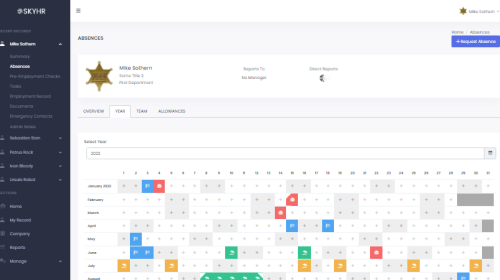Mental health is a growing concern in the workplace, and it’s increasingly being recognised that poor mental health can lead to employee absence. Employee absence has a significant impact on a business, both financially and in terms of productivity. This blog post will explore the link between mental health and employee absence, the costs of employee absence, and how employers can address mental health in the workplace to reduce absenteeism.
Mental Health and Employee Absence: The Connection
Mental health refers to our emotional, psychological and social well-being. It impacts how we think, feel and behave, and can affect our ability to work. Poor mental health can lead to stress, anxiety, and depression, which are some of the most common reasons for employee absence. In fact, mental health-related absences have been rising in recent years. According to the Health and Safety Executive (HSE), 914,000 workers were affected by work-related stress, anxiety, or depression in 2021/22, resulting in 30.8 million lost working days.
The Costs of Employee Absence
Employee absence has a significant impact on businesses, both financially and in terms of productivity. The financial costs of employee absence include sick pay, overtime payments, and the cost of temporary cover. In addition, absence can also impact productivity, as other employees may have to cover the workload of the absent employee, leading to decreased efficiency and increased stress.
Mental health-related absences can be particularly costly. Not only are they often longer-term absences, but they can also lead to presenteeism – when employees come to work despite being unwell, leading to reduced productivity and increased risk of errors or accidents.
Addressing Mental Health in the Workplace
Employers can take steps to address mental health in the workplace and reduce absenteeism. Firstly, they can create a positive work environment that supports employee well-being. This can include providing access to mental health support services, promoting healthy work-life balance, and encouraging open communication.
Employers can also provide mental health training and resources to managers and employees, helping to raise awareness of mental health issues and reduce the stigma surrounding them. This can help employees to feel supported and encourage them to seek help when needed. Such as:
- Offer mental health training programs: Employers can provide mental health training programs to managers and employees that focus on topics such as stress management, recognizing the signs of mental health issues, and promoting a positive workplace culture. These programs can be in the form of in-person training sessions, webinars, or online courses.
- Provide access to mental health resources: Employers can offer access to mental health resources such as Employee Assistance Programs (EAPs), which provide confidential counselling and support services to employees and their families.
- Encourage open communication: Employers can encourage open communication about mental health by creating a safe and non-judgmental space for employees to discuss their mental health concerns. This can be achieved through regular check-ins, one-on-one meetings, and team-building activities.
- Incorporate mental health into policies and procedures: Employers can incorporate mental health into their policies and procedures, such as by offering mental health days, flexible work arrangements, and accommodations for employees with mental health conditions.
Finally, employers can implement flexible working arrangements, such as remote working or flexible hours, which can help employees to manage their mental health and reduce stress.
Conclusion
Mental health is a significant factor in employee absenteeism, and it’s essential for employers to address this issue to reduce the impact on their business. By creating a positive work environment, providing mental health support and training, and implementing flexible working arrangements, employers can support employee well-being and reduce absenteeism.
Addressing mental health in the workplace is not only the right thing to do, but it’s also a smart business decision that can lead to increased productivity and reduced costs.




